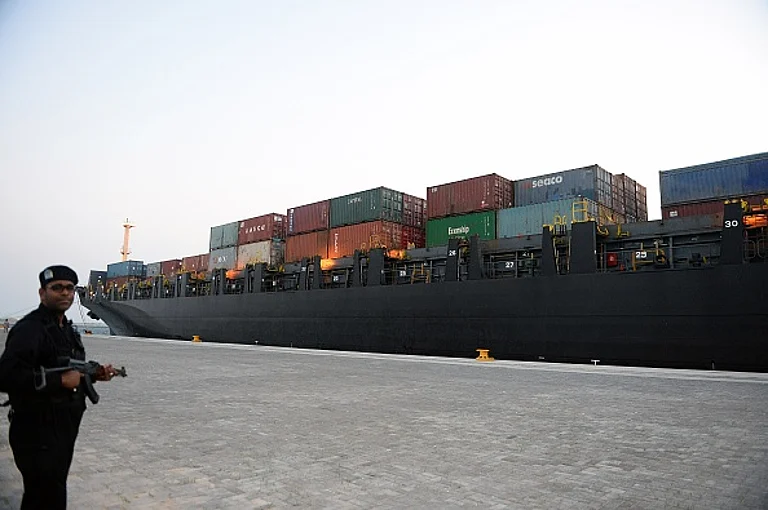The helicopter crash that killed President Ebrahim Raisi and foreign minister Hossein Amir-Abdollahian has come at a critical juncture both for Iran and the region. It will add to the volatility of the Middle East already grappling with the fallout of Israel’s war in Gaza. Add to it the Iran-Israel tit-for tat attacks, Houti strikes on ships crossing the Red Sea and a hot Lebanon - Israel border where Hezbollah, an Iranian proxy is doing its bit to aid Hamas with Israel retaliating in good measure. Fears the war engulfing more countries very remain, though so far except for limited strikes the situation has been contained. It is however a tenuous peace that can give way at any time.
Raisi’s Death Will Not Shake The Boat For The Iranian State
Iran’s Revolutionary Guards will be on the lookout to ensure that its enemies at home and abroad do not take advantage of the current situation.
An unstable Iran would add to the problems of the region. However, there is little fear of that as the Iranian Constitution clears lays down the rules. The first vice president will the approval of the Supreme Leader takes over as interim president and within 50-days elections are held for a new president.
Yet Iran’s security establishment will be on vigil to ensure Israel or even the anti-government forces inside the country cannot exploit the current situation. There are fissures in Iranian society where anger against the regime continues thanks largely to the economic woes brought about by decades of sanctions and the State’s crackdown on dissent. The anti-hijab agitation after the death in police custody of young Mahsa Amini in September 2022, led to the death of at least 500 protestors and imprisonment of thousands. The authorities in Iran will be closely monitoring the situation to ensure that its enemies within the country or outside cannot exploit the situation.
It is well known that the levers of power in Iran is with Ayatollah Ali Khamenei and the Islamic Revolutionary Guard Corps (IRGC), and President Raisi despite being an elected head of state was at best a rubber stamp. The tight control that the Ayatollah and his clique has on the country has ensured that those who do not fall in line with the leadership are not allowed to contest elections. Candidate after candidate were debarred during the March parliamentary elections, leading to an extremely poor turn out of voters. In Tehran the capital city with a population of 9.4 million in the city just about 8 percent of people came out to vote.
Raisi was a Ayatollah Ali Khamenei loyalist and was hand-picked as president. There was talk that Raisi was in the contention to succeed Ali Khamenei. The Ayatollah is 85 and is said to be in poor health. Raisi’s death has thrown open the succession question.
"The biggest challenge for Iran after Raisi’s unexpected death is on succession. Ali Khamenei had groomed him to take over, but his death throws a spanner on the succession plans of the ageing Supreme Leader. With Raisi out of the reckoning, there is uncertainty and higher chances of a power struggle,’" says Deepika Saraswat, Associate Fellow at the Manohar Parrikar Institute of Defense Studies and Analyses in New Delhi.
There are cliques and divisions within the hardline conservative groups. Infighting and factionalism will continue till a leader is chosen to succeed the ageing, Ayatollah.
The other name that was earlier doing to rounds to take over from Ali Khamenei was his second son Mojtaba Hosseini Khamenei, a cleric who teaches theology in the Qom seminary. He is said to be close to former Iranian president Ahmadinejad and worked for his presidential bid. He is also alleged to have played a leading role in the crackdown on protestors in June 2009. The protests were against what antigovernment demonstrators said was stealing of votes to favour Ahmadinejad. What works against Mojtaba is dynastic succession that is very much against the principles of the 1979 Islamic revolution against the Shah of Iran and his dynastic rule. Names of others being considered to take the place of Ali Khamenei are not known, as the system remains opaque.
Finding a pliant president loyal acceptable to both the Supreme leader and the Revolutionary Guards may not be difficult. Though Raisi was criticised for what many believe was his mishandling of the street protests that spread all across the country by both the moderates and the conservatives, he remained in the good books of the Ayatollah. He also had a good working relationship with the all-powerful Revolutionary Guards unlike his predecessor the moderate Hassan Rouhani.
Bagher Ghalibaf, current speaker of the Iranian Parliament, a former mayor of Tehran is likely to once again contest the presidential elections. He had contested several times earlier without success.
However, it is of little consequence who becomes President, simply because unless the Islamic State is ousted through a people’s revolution not much will change in Iran or the region.
